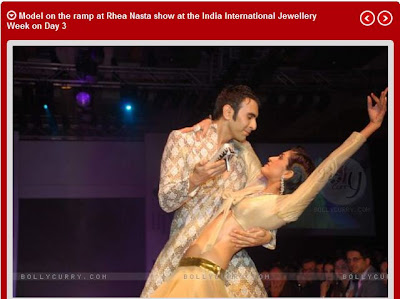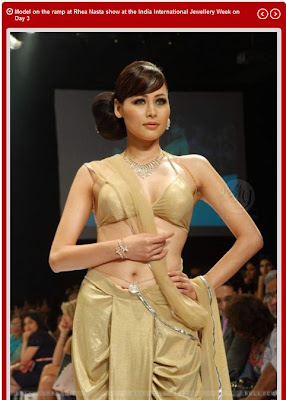
In our effort to highlight the achievements of Bhagnaris, we have mainly concentrated on our youngsters. In this article, on the occasion of India’s 64th Independence Day, we bring to you the achievements of one of our unsung heroes, who was a selfless freedom fighter and a talented artist.
Tahilram Motumal Kanar, popularly known as “Taala”, was born in a family of literates. From the childhood he was instrumental in organising freedom rallies. During the Quit India movement he fought for India’s freedom, along with people like Ravjibhai Ganatra, who went on to become mayor of Mumbai. When Mahatma Gandhi visited Karachi for the Quit India movement, Tahilram acted as one of the main volunteers.
He used to organise Prabhat Pheris (early morning processions), where they sang songs for freedom. He wrote several Sindhi, Bhagnari and Hindi songs, of which the following nationalist songs become very popular:
- Aayo aayo re Quomi fakeer, kuch naale watan je diyo
- Tahil akhenda Tahil karo, Waqt Tahil da aaya hey
- Gandhi ek langoti wala, jiske jande ke rang teen
- Jai Jai Bharat Mata (this was a very popular song and was sung in schools and cultural programs all over India)
He spent 7 years in jail at various times and suffered injuries in lathi charges. He was well supported by his wife Putli and his brother Issardas Kanar (Master), inspite of the financial difficulties faced by them. After India became independent he received offers from Congress Party for various posts, but he refused them stating that his job was done. Many of his juniors grabbed the opportunity and achieved high positions and material rewards.
He was a talented story and play writer in Bhagnari and Hindi languages. One of his plays was staged in Bhagnari Para in Karachi. Thakurdas Kamra, Ramesh U Mehta and many other Bhagnari artists acted in his plays. His songs like “Halo Halo Ri Sakhi Hardwar Haloon..Ganga Jamuna je Paar Haloon” and “Hey Koi Laal Mai Da Makhna, Mekoon Deve Dilasa Sakhna”, were a big hit. He wrote several scripts for movies, most of which were plagiarized by film producers without giving him due credit.
He also acted in films with one of his dearest friends, Moolchand Dewan. Their pairing was called Taala and Moola. They were the first Bhagnaris who acted in movies.
Being a fighter all his life, God repaid for his deeds by curing his dreaded throat decease and he passed away peacefully.
Tahilram’s grand-son Bharat has an interesting account to share. “I still remember how on 15th August, I was lazing in bed, instead of participating in the school’s flag hosting ceremony, as most school kids found it a drag to attend the same. Baba came over to me, a certain pain in his eyes, and explained as to how much torture and trouble he and his peers had to undertake to witness this glorious flag to be hoisted. Henceforth, I was one of the regular participants in the flag hoisting ceremony.
It will be interesting to know that his service to the nation was also acknowledged by Prime Minister Rajiv Gandhi, when he received a letter which appreciated his efforts in India’s freedom struggle. It was indeed a very proud moment! He will always remain in my fondest memories.”
Vishnu Kataria who lives in the UK had the good fortune of interacting with him at a young age. He has kindly forwarded the following write-up about his impressions:
“Tahilram has remained an unsung hero. Bhagnaris have worshipped wealth and power all these years but neglected talents of our heroes in other directions. To me he was almost like a father who guided me through the early years of my life. I met him one morning in Jodi Bazaar in Karachi where he was running a clothes stall, close to the perfume shops. Tall, with a face like a Roman soldier, but with a heart of gold, he spoke with the power of Prithviraj. “Son”, he said, “would you help me with the Bulletin.”
Bhagnaris of my age would perhaps remember that Bulletin was the main instrument of freedom movement, a brain child of Tahilram, a short magazine printed under the cellar of his house which also served as a candle factory, the main source of his livelihood. I was promoted as a candle maker and later as the sales person.
Tahilram's brother, as you will perhaps all know, was Master Issardas, who was then a surveyor with the municipal corporation. The family lived on the same floor with their mother. I was twelve and the Quit India movement had taken hold of India. Tahilram was the leader of the Bhagnari movement. There were four to five boys including myself who helped in the printing and distribution of the Bulletin door to door, an offence punishable by the British with a prison sentence of six to twelve months.
Tahilram, the bread-winner of the family, would ignore his dear wife Putli and thrust himself fully into the movement that had gripped us all – young and old. I clearly remember that he had, on one occasion, led a large procession to Boulton Market Police Station and laid a peaceful siege of the police station without any violence. The station was surrounded by Bhagnari and Sindhi neighbours. We kids stayed at the back of the procession. Tahilram, being the leader of the group, was taken into custody and I was pushed back by the Police as being too young to be taken into custody.
This was the political side of our dear friend, guide and philosopher Tahilram. Let us not forget that he was an artist as well. He was a great actor and director.
I will always remember his famous words: As we march ahead, we go backwards. These highly philosophical words sting in my ears as I see that the people around me in England and Mumbai are going backwards, while technologically we are supposed to be marching forward.
I had met him in Mumbai when I had started teaching in K.C. College. He was a changed man, his eyes showed intense pain and suffering, his dreams vanished, our community gradually split and darkened by economic struggle. He was, if I remember well, a disillusioned man but then he had one asset: his family, a dedicated wife and two loving children, of whom he was intensely proud of.”













